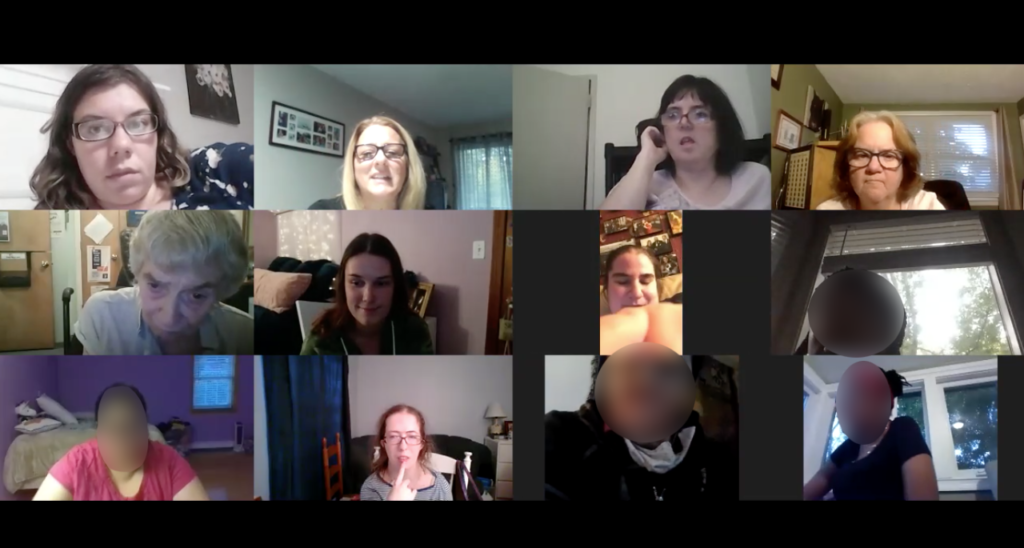Triangle Women’s Group Collaborates with IMPACT Boston
Throughout the month of December, we are highlighting stories of how we have worked together to be a stronger community and get through the difficult days of the pandemic – together we are Triangle. This week, we’re sharing the collaboration between IMPACT Boston and Triangle’s Women’s Group.

One benefit of transitioning our programming to an online Zoom-based model has been the innovative partnerships that have sprung up. As part of Triangle’s after-hours programming designed to provide a much-needed social outlet for program participants, a group of women have been meeting on a weekly basis. The Women’s Group, hosted by Triangle’s Quality Assurance Manager Dawn Maher, came together as a safe space to discuss issues that pertain specifically to women. It provided an ideal opportunity for a partnership with IMPACT Boston. Dawn recognized that IMPACT addressed internet safety comprehensibly and it would be a perfect time to address this with her group. Shay Orent, an IMPACT Program Coordinator, joined the group for three sessions to address safety needs that can arise while individuals are staying at home.
Shay covered a wide range of topics, including internet safety tips about connecting with people on social media and how to stay safe and spot red flags when talking with new people online. She also discussed healthy communication with the group, explaining the differences between passive, aggressive, and assertive communication, and provided a template for speaking up in a healthy, assertive way. Finally, she went over relationships and touch, working with the group to review which kinds of touch are appropriate within which kinds of relationships.
Covering these tricky topics is especially critical right now, as many people are more isolated and are using the internet as their primary means of meeting their social needs. This comes with a certain amount of risk for anyone, given that it can sometimes be hard to ascertain someone’s intentions or real identity if we’re meeting them online. The risk may be even higher for people with disabilities, because they are potentially more isolated and are more likely to be targeted by people whose intentions are abusive or exploitative. Teaching healthy relationships skills to program participants to help them learn how to spot red flags and trust their instincts when something doesn’t feel right will hopefully result in more happy relationships and fewer dangerous situations. Members of the women’s group felt better equipped to handle anything now!
Keep your eye on our social media and blog for more stories of how we have come together during this difficult time. If you want to support our innovative programming, you can make your year-end donation here. Together we are Triangle!